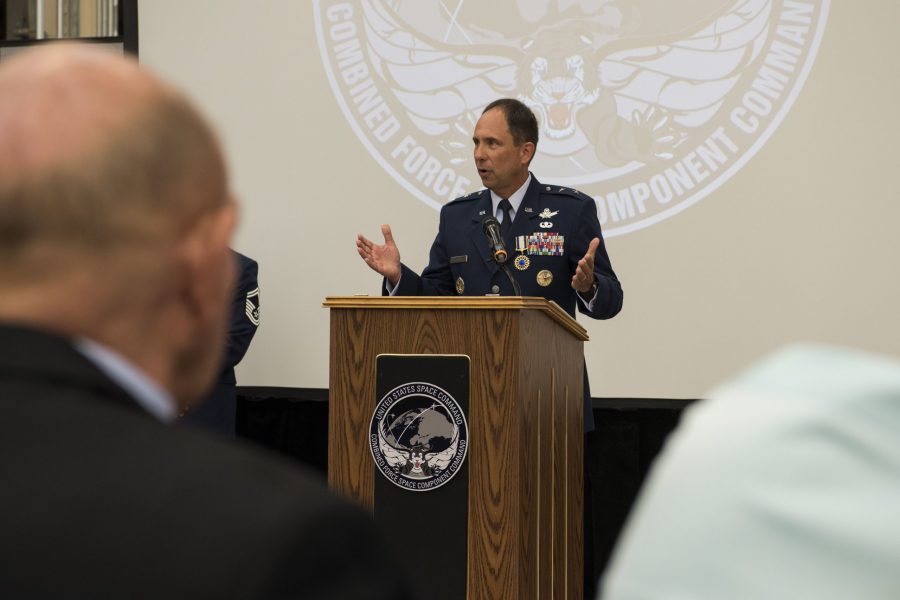Maj. Gen. John E. Shaw, the head of the Space Force’s operations organization, is up for a promotion to be the deputy commander of U.S. Space Command, the Pentagon said Oct. 1.
If confirmed by the Senate, Shaw would also rise to the rank of lieutenant general.
He currently holds two complementary jobs: One is head of the Space Force’s Space Operations Command, where he is in charge of organizing and equipping troops for space domain awareness, space electronic warfare, satellite communications, missile warning, nuclear detonation detection, intelligence collection, and more. The other is head of SPACECOM’s Combined Force Space Component Command, where he oversees more than 17,000 people across four operations centers in the U.S. who conduct daily missions with satellites, radars, and other space-related assets provided by the armed forces.
As SPACECOM’s deputy commander, Shaw would play a larger role in the broad policy and planning work of the Defense Department’s newest combatant command. That includes how SPACECOM executes its warplans and works with regional commanders and other groups like U.S. Strategic Command, U.S. Cyber Command, the military services, and the intelligence community.
Shaw’s nomination also continues the Department of the Air Force’s legacy in SPACECOM leadership; an Army general is currently serving in that top job for the first time.
He has held a variety of jobs across the space community, like running the 21st Space Wing at Peterson Air Force Base, Colo., and serving as deputy commander of the Space Force’s predecessor organization, since the 1990s.
In addition to more traditional military space missions, Shaw has said troops could someday head to orbit to man operations centers, or broaden its role in search-and-rescue for those who go to space. The Department of the Air Force already handles terrestrial rescue of astronauts going to and coming from the International Space Station.
“If a small asteroid or meteorite did hit the Earth, there would be some sort of emergency management response on the part of our nation to support wherever that landed, and the Department of Defense would be happy to be a teammate [with NASA] in that regard,” he added in June.
